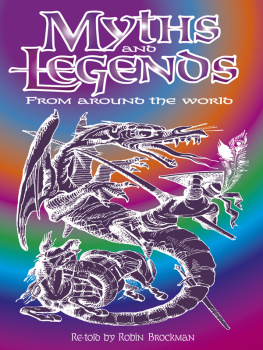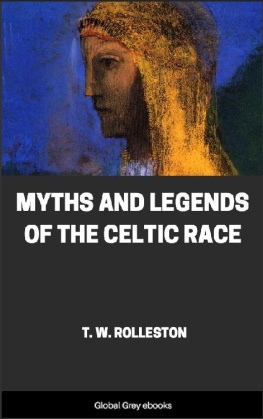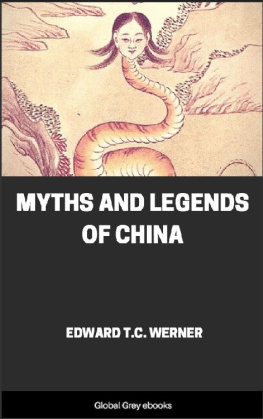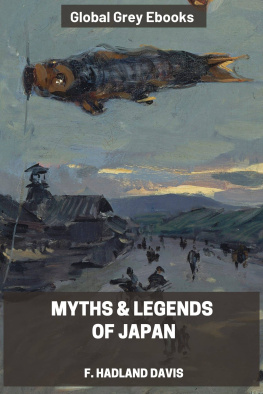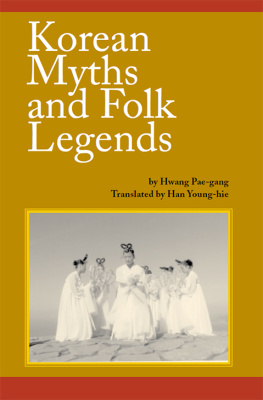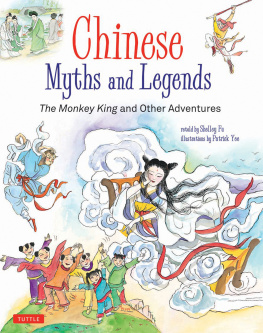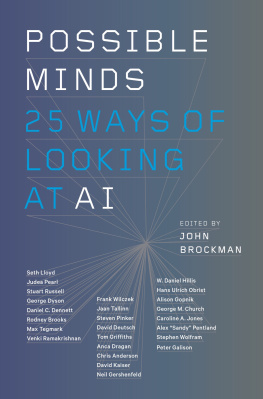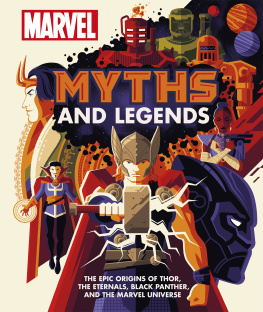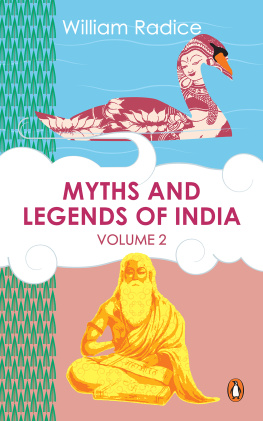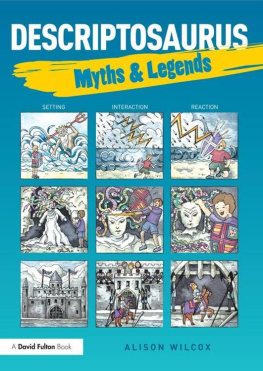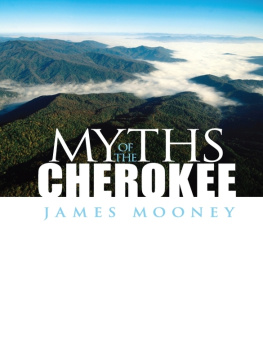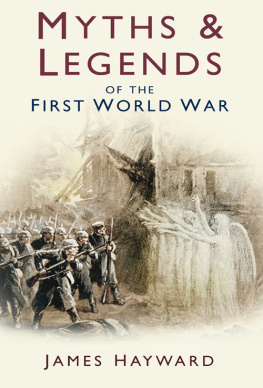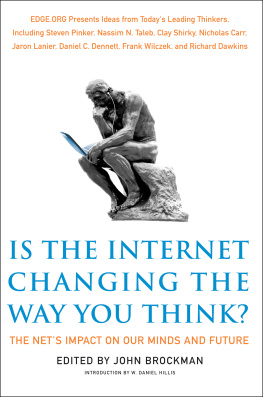Robin Brockman - Myths and Legends from Around the World
Here you can read online Robin Brockman - Myths and Legends from Around the World full text of the book (entire story) in english for free. Download pdf and epub, get meaning, cover and reviews about this ebook. year: 2000, publisher: Arcturus Digital Limited, genre: Non-fiction. Description of the work, (preface) as well as reviews are available. Best literature library LitArk.com created for fans of good reading and offers a wide selection of genres:
Romance novel
Science fiction
Adventure
Detective
Science
History
Home and family
Prose
Art
Politics
Computer
Non-fiction
Religion
Business
Children
Humor
Choose a favorite category and find really read worthwhile books. Enjoy immersion in the world of imagination, feel the emotions of the characters or learn something new for yourself, make an fascinating discovery.
- Book:Myths and Legends from Around the World
- Author:
- Publisher:Arcturus Digital Limited
- Genre:
- Year:2000
- Rating:4 / 5
- Favourites:Add to favourites
- Your mark:
- 80
- 1
- 2
- 3
- 4
- 5
Myths and Legends from Around the World: summary, description and annotation
We offer to read an annotation, description, summary or preface (depends on what the author of the book "Myths and Legends from Around the World" wrote himself). If you haven't found the necessary information about the book — write in the comments, we will try to find it.
Myths and Legends from Around the World — read online for free the complete book (whole text) full work
Below is the text of the book, divided by pages. System saving the place of the last page read, allows you to conveniently read the book "Myths and Legends from Around the World" online for free, without having to search again every time where you left off. Put a bookmark, and you can go to the page where you finished reading at any time.
Font size:
Interval:
Bookmark:

Re-told by Robin Brockman
Illustrations by Michael McLellan

This edition published in 2011 by Arcturus Publishing Limited
26/27 Bickels Yard, 151-153 Bermondsey Street, London SE1 3HA
Copyright 2000 Arcturus Publishing Limited
All rights reserved. No part of this publication may be reproduced, stored in a retrieval system, or transmitted, in any form or by any means, electronic, mechanical, photocopying, recording or otherwise, without written permission in accordance with the provisions of the Copyright Act 1956 (as amended). Any person or persons who do any unauthorised act in relation to this publication may be liable to criminal prosecution and civil claims for damages.
ISBN 978-1-84837-436-2
To Anne and Peter Jousiffe
for their friendship, courage under fire
and the loan of so many
invaluable books.
Perhaps a more apt title for this volume might have been Favourite Myths and Legends, or better still, Selected Myths and Legends From Around the World. This is above all meant to be an easy to read, accessible book, while being faithful to its subjects. Inclusion has depended entirely on what in my own opinion makes a good, rousing, edifying, amusing, charming or frightening story. References to time, context, location and ethnic origin are contained within the tales so that each one can stand alone, as a short-story, without explanation or elaboration.
It is my hope that this book will encourage many readers to study the original or earlier versions of the stories, as well as other tales from the great wealth of world myth and legend. This volume will best serve as a general overview, perhaps even a primer. Cultural balance of a sort has been easy to achieve because nearly every part of the world and every ethnic strain of man has its gods and heroes, monsters and magicians.
In retelling these tales I have tried to make each one memorable and relevant to the modern reader, whether that reader is new to them entirely or encountering them here reborn. None of the hard information in them has been changed, though. Myth, after all, and even that close relation of it, legend, has far more importance in societies than that of simple entertainment. The very wisdom of the ancients, perhaps the Creator's instructions to humanity, may well be wrapped up in certain of our most universal myths. Memory experts attest that even the most mundane or very practical information is best retained by people if it is presented to them in the form of a story.
Partly for this reason common threads abound in tales from the most widely dispersed cultures. This is the case in even the least cosmic, most uninstructive myths. Just being human, living in these bodies on this earth, provides unlimited universal commonality of experience and imagination. This fact constantly highlights, if not some high-minded message of the brotherhood of man, then at least that the world which we like to think became so much smaller in modern times has always been pretty tiny.
There is much that was always pure allegory, of course, or meant to be wondrous explanations to impress the masses, while the ruling class or priest caste were the only ones privy to really important information about the nature of this life on earth. There is, therefore, plenty of magic of a far-fetched and supernatural kind in these stories. This is not restricted to the very early ones of how the universe was formed or how life began, nor is it confined to tales of gods and monsters. Of course, even the beliefs of the cognoscenti, the high priests and members of mystery cults, were fantastic by any modern standards. Some people see this as reflecting humankind's greater gullibility in days gone by, during the so-called long childhood of man.
The myths and legends of our own age tend only to exaggerate what we see as reality, and, with a few exceptions, very little of the magical seems to creep into them. We are not even sceptically religious these days. No longer do we accept, for instance, as the Victorians did, so much as the mere tenets of the established faith of the land. And we reject all others with even greater ease. More than any of our predecessors in the recorded and unrecorded history of our species, we demand proof of everything.
However, if pre-history and ancient civilizations constituted the childhood of man, as some call it, I maintain that our era is surely its adolescence. We believe nothing, doubt everything, and deny all that cannot be seen and measured by the yardstick of our own limited point of view. Nothing exists if science cannot verify it. But science operates in only three dimensions: on this plane, in the present time, among what we call the living, natural world. Human experience tells us repeatedly, and has always told us, that, in reality, there is so very much more.
This takes us into the realm of metaphysics, which all ages have produced. Practical, scientific and intelligent men of logic made as much a study of the unseen and unexplainable in ancient times as they did of the more conventional things many are known for today. Indeed, humanity's greatest minds were more open to such matters in the past than they are now and only a fool would say this was purely out of superstition, naivety or ignorance.
Myth and legend do not grow out of metaphysics, however. They are most often the tools of religion and race or exercises in raising national consciousness. One definition of myth might be the beliefs of defunct or otherwise distant, usually foreign, religions. Legends are notably the stuff of group identity, shining example, nostalgia and folk history. They tell a people who they used to be and what the best of them could achieve. They speak of what a group stands for and what sort of champions they look to see return in times of need, either in the character of their sons and daughters or out of the mists of the world of magic, mystery and divinity. Always these forces favour one's own band, tribe, nation or race over all others.
One of the reasons myths and legends endure, however, is because they are not the true property of any group. This is not only because of their universality, but because they feed on one another, become appropriated by conquerors, immigrants, the oppressed or newly formed groupings. Theft, mixing, regurgitation and incorporation all happen constantly even today.
Along with this process certain parts of history or religion pass into myth and legend. Legend can become myth in this way, though myth seldom becomes legend. The people of a defeated race, who have perhaps been driven into the wilds, develop skills that seem magical, and just in order to survive may become pixies, elves and leprechauns. It happened in Ireland, Scotland and Wales and we can see it happening even now in North America, New Zealand, Australia and elsewhere around the world. Population shifts and the passing of peoples and cultures inevitably invite this transmigration.
We can gain insight, too, from the increasing disappearance of animal species. Because of their absence or loss we find ourselves creating mythical beasts to replace them. Perhaps we can see in this process how our ancestors accepted the existence of rare or supposedly recently extinct animals such as unicorns and dragons.
Many in our society hold that the city of Atlantis existed and some believe it may yet be found under the ice of Antarctica. If such a thing should ever happen, it would not be the first time that myth has become history or reality. It is wise to remember that until very recent times, any suggestion that giant lizards had dominated the earth before mankind would have been regarded as mythological fancy. The existence of dinosaurs is taken for granted now, and most people do not realize we ever doubted it.
Font size:
Interval:
Bookmark:
Similar books «Myths and Legends from Around the World»
Look at similar books to Myths and Legends from Around the World. We have selected literature similar in name and meaning in the hope of providing readers with more options to find new, interesting, not yet read works.
Discussion, reviews of the book Myths and Legends from Around the World and just readers' own opinions. Leave your comments, write what you think about the work, its meaning or the main characters. Specify what exactly you liked and what you didn't like, and why you think so.

